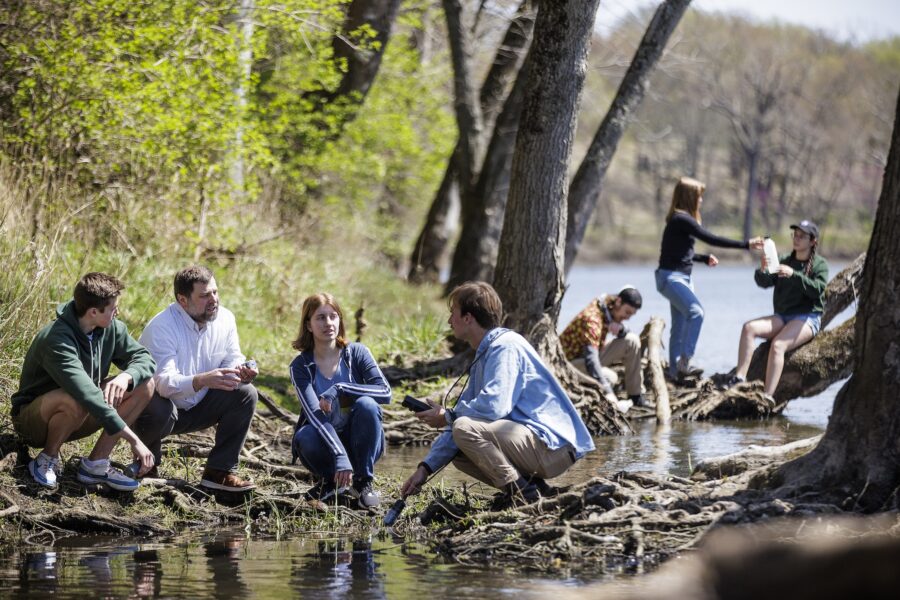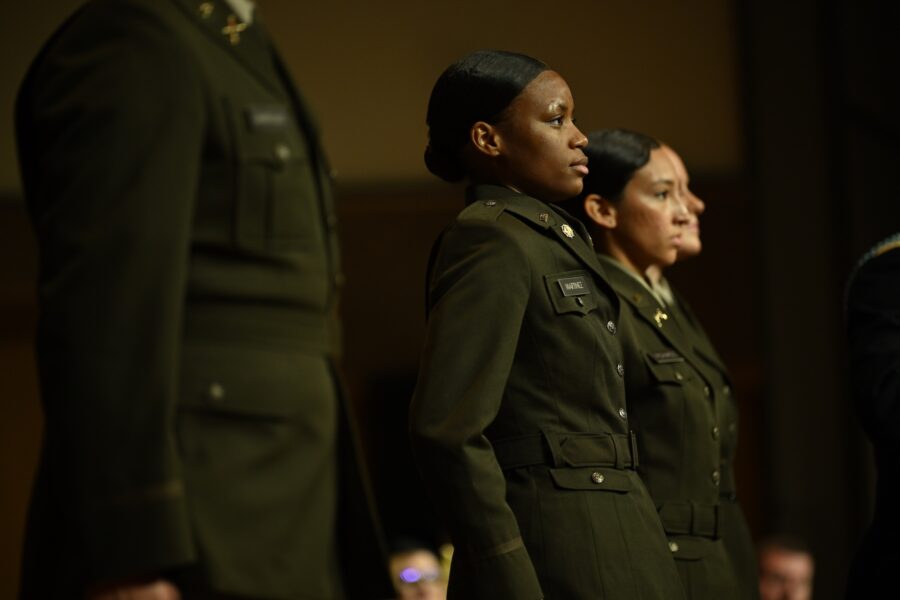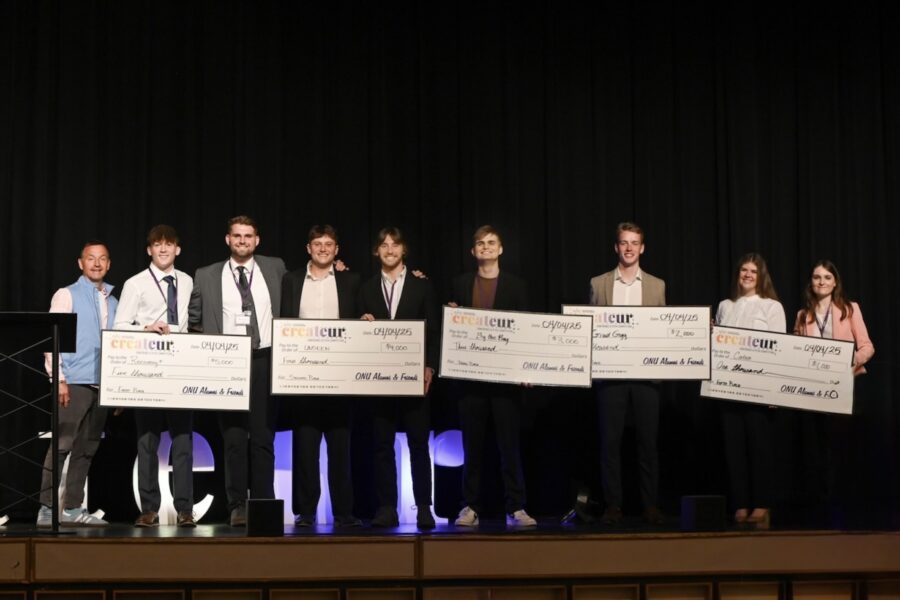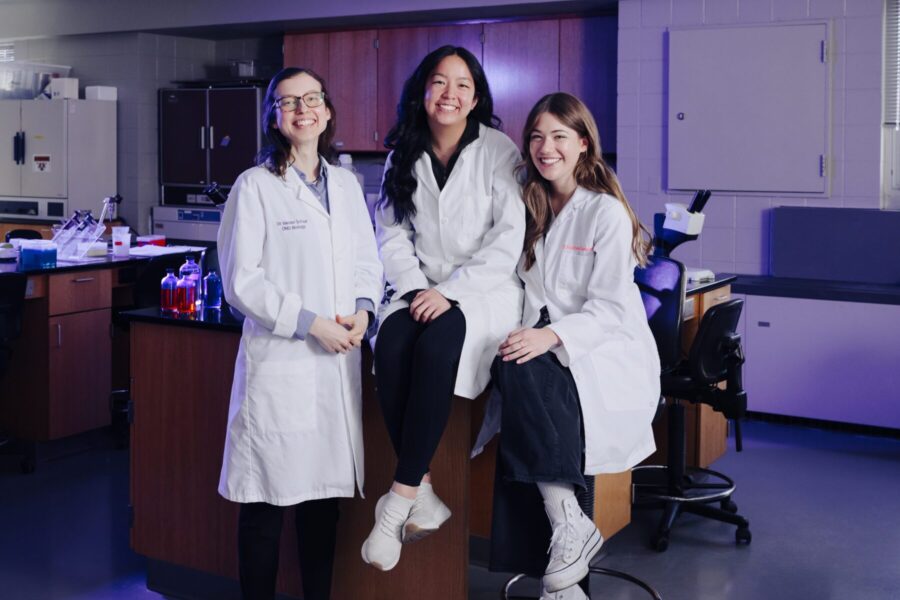
“I was first introduced to research during my own undergraduate degree in biology, and I’ve been hooked ever since,” says Nicole Vander Schaaf, Ph.D., professor of biology at Olivet Nazarene University. “There’s something exciting about discovering new knowledge and learning more about God’s handiwork through research.”
This summer, Dr. Vander Schaaf and a group of students from the Walker School of STEM will travel to Papua New Guinea to serve for a month at the Kudjip Nazarene Hospital. She will mentor biology students, senior Lucy Martinson and junior Sadie Blaszczyk, to test samples from local women for the human papilloma virus (HPV), which commonly causes cervical cancer. This intensive research experience is a unique element of the students’ University Honors Program capstone research projects. 
When Dr. Vander Schaaf first traveled to Papua New Guinea three years ago on a mission trip, she worried that her microbiology-focused skills and expertise were unlikely to be useful to the hospital. However, she quickly realized that although she could not directly provide medical care, she could be useful in the clinical lab.
“After my visit, I felt the Lord’s calling to use my training to bring more of God’s Kingdom here on Earth as it is in Heaven,” Dr. Vander Schaaf reflects. “I asked one of the doctors what some of their biggest needs are, and cervical cancer was near the top of the list. The doctors see too many young women die of a disease that is almost completely preventable. We then began to brainstorm how we could make a difference through research.”
The University Honors Program offers qualified students the opportunity to satisfy four general education courses through a multidisciplinary approach during their first two years of college. During the following two years, students who want to continue in the program formulate a research topic, which they explore under the guided mentorship of a faculty member.
Dr. Vander Schaaf had previously mentored a biology student in the University Honors Program and thought that the HPV testing research would be a great topic for another student research project. She suggested that Lucy join her efforts to develop a low-cost but equally effective and consistent HPV testing mechanism like what is currently available on the market. In initial testing, Dr. Vander Schaaf and Lucy identified affordable reagents but faced logistical hurdles such as how to transport materials that needed to remain at sub-zero temperatures for 8,400 miles. Ultimately, they found success drying out the reagents for reactivation at their final destination.
“This research is truly unique and only could have happened by all the things God set in place,” Lucy reflects. “The whole project was a combination of a bunch of tiny miracles. We didn’t know if we could afford the first trip, and then we weren’t sure we’d even be able to transport the tests without damaging their efficacy. But it all worked out, and we got to go support doctors and researchers in providing healthcare to women.”
When Lucy and Dr. Vander Schaaf traveled to Kudjip Nazarene Hospital last summer, they witnessed the medical staff educating local women about the importance of getting tested for HPV and how such tests can lead to early detection and cancer treatment. The team received positive feedback from the training, and consenting women received two tests: a conventional screening that is usually cost-prohibitively inaccessible in Papua New Guinea and the test that Dr. Vander Schaaf and Lucy were hoping to optimize by comparing their results to the former. Unfortunately, they quickly realized there was a prevalent issue of false positive results in their experimental tests, indicating there was more work to be done to increase its reliability.
They returned to campus hopeful to be able to adjust their methods. However, Lucy’s period of research was drawing to a close. For the research to continue to gain traction, Dr. Vander Schaaf knew that adding someone to the team was necessary. She felt confident that Sadie would be the right person.
“The saddest thing for me to see after Lucy’s work would have been for our HPV testing project to die due to lack of student interest,” adds Dr. Vander Schaaf. “Once you’ve seen firsthand the immense need for HPV testing and have looked in the eyes of the women who were so grateful to be tested, you can’t unsee that. The hopeful but not-ready-yet progress that Lucy has made is incredible, and I am so grateful for Sadie’s willingness to continue this project, with the hopes that someday all women will have access to an affordable HPV test.”
Sadie was familiar with the project from weekly walks with Dr. Vander Schaaf and was grateful to be formally brought in to the research.
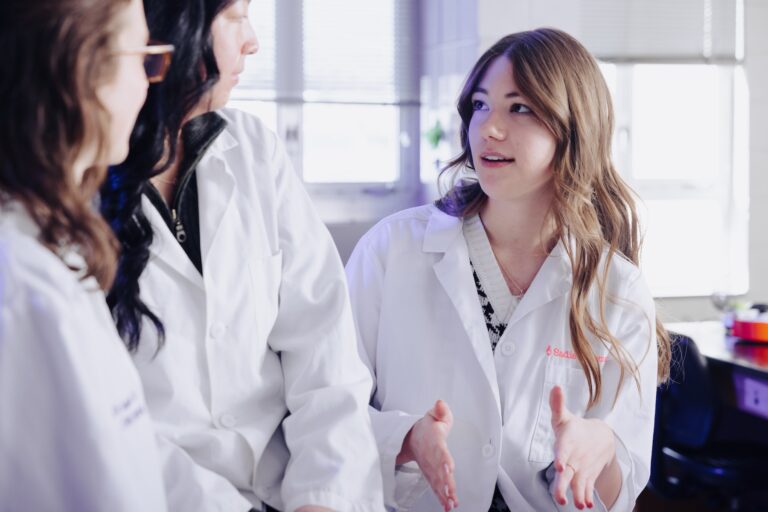 “I was very excited to join the team,” Sadie reflects. “Lucy and Dr. V were able to build trust with the women in Papua New Guinea, which was a big win. When they came back, I was able to help focus on one piece of the puzzle to gain testing accuracy.”
“I was very excited to join the team,” Sadie reflects. “Lucy and Dr. V were able to build trust with the women in Papua New Guinea, which was a big win. When they came back, I was able to help focus on one piece of the puzzle to gain testing accuracy.”
The collaborative approach to research has proven helpful for a smooth passing of the torch. Early this past January, Sadie and Dr. Vander Schaaf had a breakthrough in the lab that nearly wiped out the presence of false results, meaning they could shift their focus to the cost effectiveness of the tests and hopefully apply the knowledge to screening for other strains of HPV.
The work the three women have completed by investing hundreds of hours has a greater purpose than just bolstering their own personal experiences. They have already contributed to life-changing research to impact women in Papua New Guinea.
“Research can be missional — a way to serve God and love His people,” says Dr. Vander Schaaf of her passion for the project. “Partnering with students for research continues to bring me great fulfillment and joy, and I hope my students get a taste of this as well.”
Lucy has found this to be true.
“It was great to see how God was using scientific disciplines to impact real people,” Lucy says. “I hope our research provides data for someone to fully develop new testing systems to increase accessibility for women around the world.”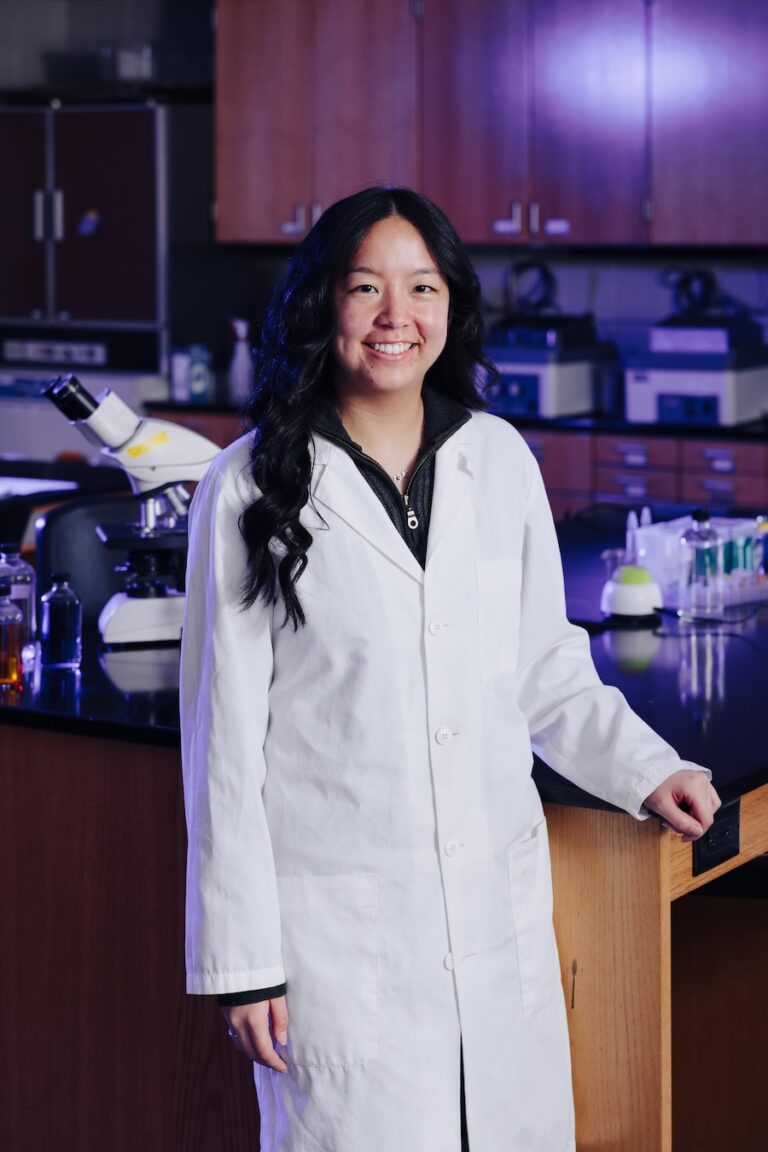
Sadie has similar hopes for the application of their collective research.
“Papua New Guinea doesn’t currently have a national screening program for HPV due to the high cost per test,” she says. “What we’re working on with this alternative method has the potential to help women who are at high risks for cancer. I know that this issue is on God’s heart, and it is so fulfilling to use academics to honor Him in this way.”
To be eligible for application to the Honors Program, students must meet at least one of the following qualifications: have an ACT score of 28 (or an equivalent SAT score); graduate in the top 10 percent of their graduating class; or have an unweighted GPA of at least 3.75 on a 4.0 scale.
From Olivet The Magazine, Think On These Things – Spring 2025. Read the full issue here.


